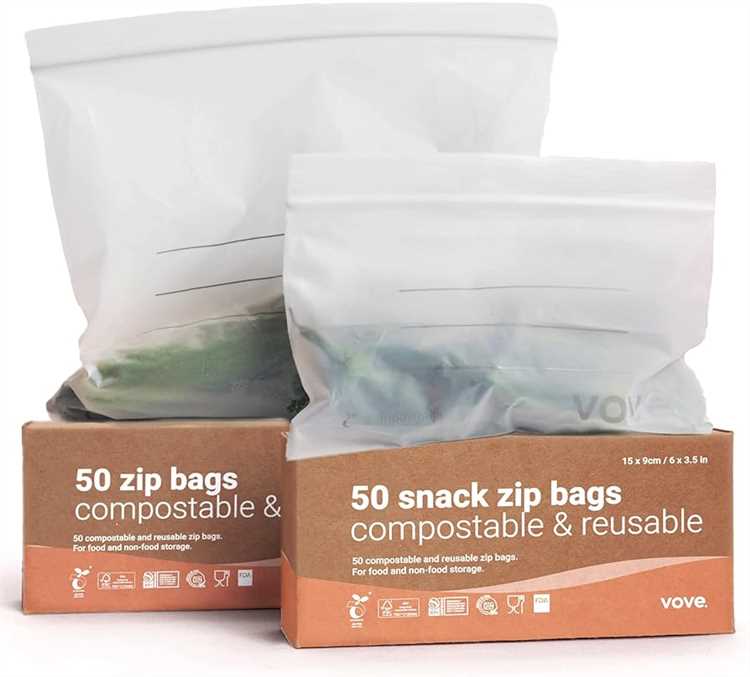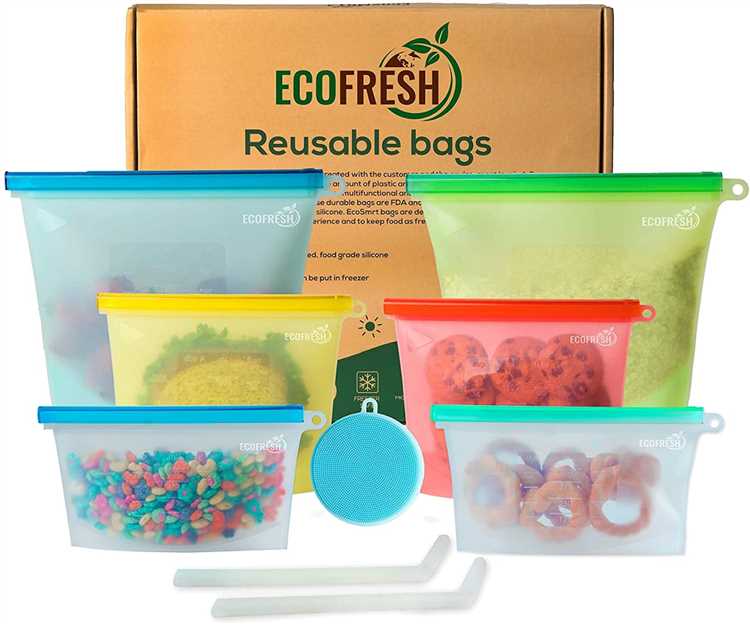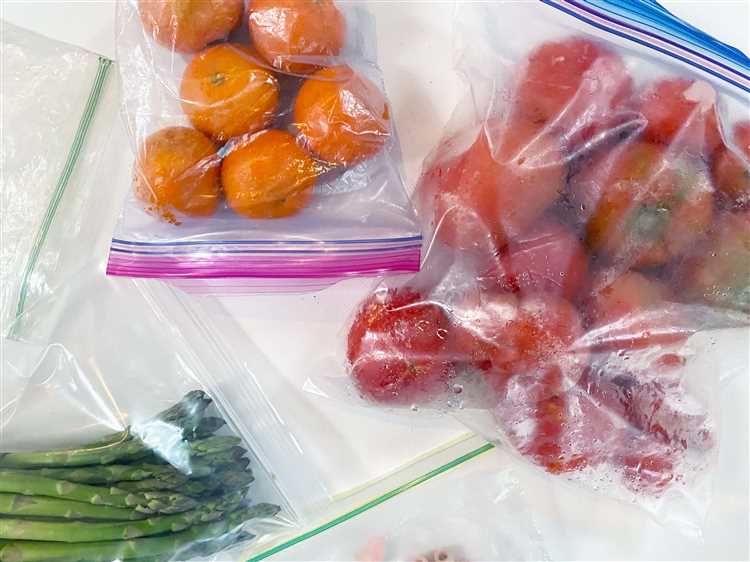
Ziploc bags have become a staple in many households, offering a convenient way to store and transport food items. However, as concerns about the environment grow, it is important to consider the impact that these bags have on our planet. Are Ziploc bags truly eco-friendly, or do they contribute to the pollution and waste that plagues our ecosystems?
One of the primary concerns regarding Ziploc bags is their reliance on plastic. These bags are typically made from polyethylene, a type of plastic that is derived from non-renewable resources such as petroleum. This means that the production of these bags contributes to the depletion of finite resources and the emission of greenhouse gases.
Furthermore, the disposal of Ziploc bags poses a significant environmental threat. While they are recyclable, many people do not know that and end up throwing them in the regular trash. As a result, these bags often end up in landfills where they can take hundreds of years to decompose. During this time, they can release harmful chemicals into the soil and water, ultimately endangering wildlife and ecosystems.
However, it is important to note that Ziploc has taken steps to address these concerns. They offer recycling programs and have developed a line of bags made from partially recycled materials. Additionally, they have introduced compostable bags that break down more quickly in natural environments. While these efforts are commendable, it is still crucial to consider the overall impact of Ziploc bags on the environment.
In conclusion, Ziploc bags are not inherently eco-friendly due to their use of non-renewable resources and the potential for improper disposal. While the company has made efforts to improve their environmental footprint, it is essential for consumers to be aware of the impact these bags have on the environment and to consider alternative options for storing and transporting their belongings.
- Are Ziploc bags eco-friendly?
- Impact of Ziploc bags on the environment
- Conclusion
- Environmental concerns regarding Ziploc bags
- Alternatives to Ziploc bags
- Reusable Silicone Bags
- Mason Jars
- Beeswax Wraps
- Recycling and proper disposal of Ziploc bags
- Biodegradable options for storage bags
- 1. Biodegradable plastic bags
- 2. Compostable bags
- Question-answer:
- Are Ziploc bags recyclable?
- What are Ziploc bags made of?
- How long does it take for a Ziploc bag to decompose?
- Can Ziploc bags be reused?
- What is the environmental impact of Ziploc bags?
- Are Ziploc bags recyclable?
- Do Ziploc bags biodegrade?
Are Ziploc bags eco-friendly?
Ziploc bags, a popular household item for storing food and other items, have become a staple in many homes. However, their impact on the environment is a topic of concern.
These bags are made of polyethylene, a type of plastic that is derived from fossil fuels. The production of polyethylene requires a considerable amount of energy and contributes to greenhouse gas emissions. Additionally, the manufacturing process involves the use of chemicals that can be harmful to the environment.
One of the biggest environmental concerns with Ziploc bags is their disposal. While they can be reused, many end up in landfills where they can take hundreds of years to decompose. Plastic waste like Ziploc bags has the potential to leach harmful chemicals into the soil and water, posing a threat to wildlife and ecosystems.
However, it is worth noting that Ziploc bags can also be recycled. Many communities have recycling programs that accept plastic bags, including Ziploc bags. When properly recycled, the plastic can be turned into new products, reducing the demand for virgin plastic and the associated environmental impact.
Despite the availability of recycling options, it is important to remember that reducing and reusing should be prioritized over recycling. Choosing reusable containers or alternatives to single-use plastic bags, such as beeswax wraps or silicone bags, can significantly reduce the environmental impact.
In conclusion, while Ziploc bags can be recycled, their production, disposal, and potential environmental consequences make them a less eco-friendly option. As individuals, we can make a difference by opting for more sustainable alternatives and reducing our reliance on single-use plastics.
Impact of Ziploc bags on the environment
Ziploc bags, although convenient and widely used, have a significant impact on the environment.
The primary concern with Ziploc bags is their contribution to plastic waste. These bags are made from plastic, specifically low-density polyethylene (LDPE). LDPE is a petroleum-based material and does not biodegrade easily. When Ziploc bags are thrown away and not properly disposed of, they end up in landfills or as litter in the environment.
Once in the environment, Ziploc bags can take hundreds of years to decompose. During this time, they break down into smaller pieces called microplastics. These microplastics can infiltrate our waterways, oceans, and soil, posing a threat to wildlife and ecosystems. Marine animals, birds, and other wildlife often mistake microplastics for food and ingest them, causing harm and even death.
Additionally, the production of Ziploc bags requires significant amounts of energy and resources. This includes the extraction of petroleum, refining it into plastic, and manufacturing the bags themselves. The production process emits greenhouse gases and other pollutants, contributing to climate change and air pollution.
Despite these negative impacts, some steps can be taken to mitigate the environmental harm caused by Ziploc bags. One option is to reduce the use of these bags by replacing them with reusable alternatives such as silicone food storage bags or glass containers. When Ziploc bags are necessary, they can be reused multiple times before being disposed of properly in recycling programs or by visiting recycling centers that accept them.
Conclusion
Ziploc bags have a significant impact on the environment due to their contribution to plastic waste, slow decomposition process, and resource-intensive production. It is important for individuals to be mindful of their usage and seek out reusable alternatives to minimize the harm caused by these bags.
Environmental concerns regarding Ziploc bags
Ziploc bags, while convenient and versatile, have raised numerous environmental concerns due to their impact on the environment. These concerns include:
- Plastic waste: Ziploc bags are made of plastic, which is derived from non-renewable fossil fuels. The production and disposal of plastic bags contribute to the depletion of these resources and generate significant amounts of waste.
- Non-biodegradability: Ziploc bags are not biodegradable, meaning they do not break down naturally over time. Instead, they persist in the environment for hundreds of years, leading to long-term pollution of landfills and oceans.
- Microplastic pollution: As Ziploc bags degrade, they can break down into smaller fragments known as microplastics. These microplastics can enter the food chain and waterways, posing risks to wildlife, ecosystems, and potentially human health.
- Single-use nature: Ziploc bags are often used once and then discarded, contributing to the global issue of single-use plastic waste. The convenience of Ziploc bags has led to their widespread use, exacerbating the problem of plastic pollution.
- Energy and water usage: The manufacturing process of Ziploc bags requires energy and water resources, contributing to environmental impacts associated with their production.
Considering these concerns, it is essential to evaluate alternatives to Ziploc bags that are more eco-friendly and sustainable.
Alternatives to Ziploc bags
While Ziploc bags may offer convenience, they are not the most eco-friendly option. Fortunately, there are several alternatives to Ziploc bags that are more sustainable and can help reduce your environmental impact.
Reusable Silicone Bags
One popular alternative to Ziploc bags is reusable silicone bags. These bags are made from food-grade silicone, which is a durable and non-toxic material. They are a great option for storing snacks, sandwiches, and leftovers. Unlike Ziploc bags, silicone bags can be reused countless times, reducing the amount of plastic waste that ends up in landfills.
Mason Jars

If you’re looking for a plastic-free alternative, mason jars are a fantastic option. Not only are they reusable and durable, but they also add a touch of charm to your kitchen. Mason jars come in various sizes, making them suitable for storing both dry goods and liquids. They are perfect for packing salads, soups, and even homemade sauces. Plus, they are easy to clean and maintain.
Note: When using mason jars to store liquids, make sure to leave some headspace at the top to prevent spills and breakage when freezing.
Beeswax Wraps

For storing food items such as cheese, fruits, and vegetables, beeswax wraps are an excellent alternative to Ziploc bags. Beeswax wraps are made from organic cotton cloth that is coated with a mixture of beeswax, jojoba oil, and tree resin. These wraps mold easily around food items, creating a seal that keeps them fresh. They are reusable and can be refreshed by simply washing them with mild soap and cool water. Beeswax wraps are biodegradable and a great way to reduce single-use plastic waste.
Remember: Beeswax wraps should not be used to store raw meat or hot foods.
In conclusion, there are plenty of eco-friendly alternatives to Ziploc bags that can help reduce plastic waste and minimize your ecological footprint. Whether you choose reusable silicone bags, mason jars, or beeswax wraps, making the switch to these sustainable options is a step towards a greener future.
Recycling and proper disposal of Ziploc bags
When it comes to Ziploc bags, the good news is that they can be recycled. Most Ziploc bags are made from polyethylene, a plastic resin that is widely accepted for recycling. However, it’s important to note that not all recycling facilities accept Ziploc bags, so it’s recommended to check with your local recycling program or waste management company for specific instructions.
To properly recycle Ziploc bags, it’s best to clean them first. Make sure to remove any residue or leftover food before recycling. It’s also important to separate the Ziploc bags from other recyclables, such as paper or glass, as mixing different materials can contaminate the recycling process.
If your local recycling program does not accept Ziploc bags, there are alternative options available. Some grocery stores and retailers offer special recycling programs for plastic bags, including Ziploc bags. These programs usually have designated collection bins where you can drop off your used Ziploc bags for recycling.
If recycling is not an option, it’s essential to dispose of Ziploc bags properly. Never litter or throw them in the regular trash, as this contributes to pollution and can harm wildlife. Instead, consider reusing Ziploc bags whenever possible or look for alternatives like reusable silicone bags or glass containers.
Overall, while Ziploc bags can be recycled, it’s important to be aware of local recycling guidelines and to choose sustainable alternatives whenever possible. By properly recycling or disposing of Ziploc bags, you can help minimize their environmental impact and promote a more eco-friendly lifestyle.
Biodegradable options for storage bags
While Ziploc bags may not be the most eco-friendly option for storing food and other items, there are alternative options available that are biodegradable and have a lesser impact on the environment.
1. Biodegradable plastic bags
One option is to choose biodegradable plastic bags, which are made from a type of plastic that can break down over time when exposed to certain environmental conditions. These bags are designed to decompose into natural elements, such as water, carbon dioxide, and biomass, without leaving behind harmful residues. Biodegradable plastic bags offer a more sustainable alternative to traditional plastic bags and can be used for various storage purposes.
2. Compostable bags
Compostable bags are another eco-friendly option for storage. These bags are made from natural materials, such as cornstarch or vegetable-based bioplastics, and are designed to disintegrate in a composting environment. Compostable bags break down completely within a specific timeframe and can help reduce waste and support nutrient-rich composting processes.
Both biodegradable plastic bags and compostable bags provide a more sustainable choice for storage needs. However, it is important to note that these bags may require specific disposal methods to ensure proper decomposition and avoid contaminating recycling or composting systems. Always check the packaging and follow the recommended guidelines for disposal.
Remember: While opting for biodegradable or compostable bags is a step towards a greener option, it is still advisable to limit the use of single-use storage bags altogether. Consider reusable alternatives, such as glass containers or silicone bags, which can offer a more sustainable and long-lasting solution.
By choosing biodegradable or compostable options for storage bags, individuals can contribute to reducing overall waste and minimizing the negative environmental impact associated with traditional plastic storage bags.
Question-answer:
Are Ziploc bags recyclable?
Yes, Ziploc bags are recyclable.
What are Ziploc bags made of?
Ziploc bags are made of a type of plastic called low-density polyethylene (LDPE).
How long does it take for a Ziploc bag to decompose?
Ziploc bags can take hundreds of years to decompose in a landfill.
Can Ziploc bags be reused?
Yes, Ziploc bags can be reused multiple times before being disposed of.
What is the environmental impact of Ziploc bags?
Ziploc bags have a negative environmental impact due to their long decomposition time and the energy required to produce them.
Are Ziploc bags recyclable?
Yes, Ziploc bags are recyclable, but only in certain recycling facilities. Most curbside recycling programs do not accept them because they are made of low-density polyethylene (LDPE) plastic, which can clog recycling equipment. However, some grocery stores and recycling centers have drop-off bins specifically for plastic bags, including Ziploc bags. Make sure to check with your local recycling program to find out where you can recycle Ziploc bags.
Do Ziploc bags biodegrade?
No, Ziploc bags do not biodegrade. They are made of plastic, specifically LDPE plastic, which is designed to be durable and long-lasting. This means that when discarded, Ziploc bags can persist in the environment for hundreds of years, contributing to plastic pollution.